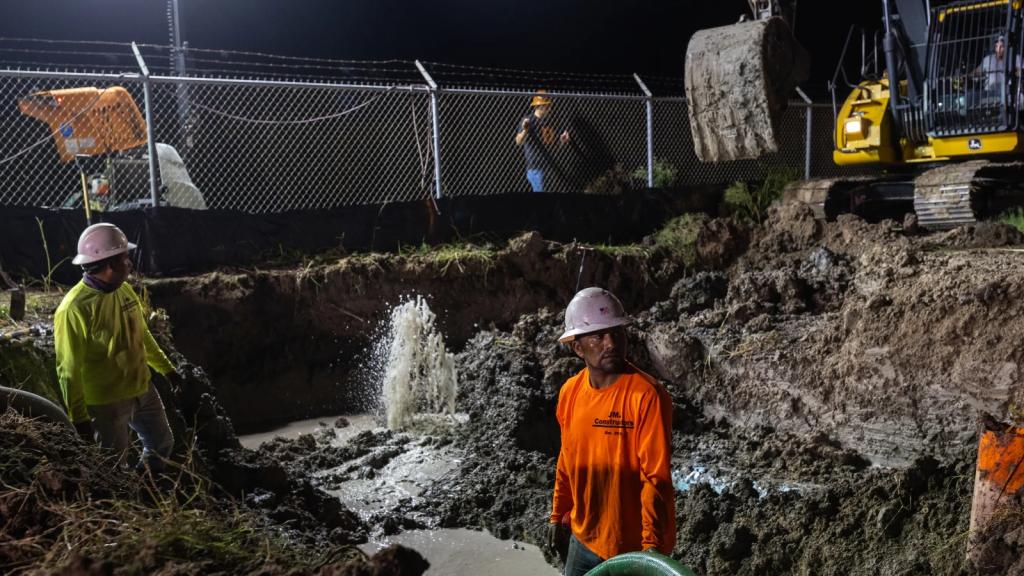As the letter below indicates, OMB Watch has spent a lot of time on defense since the Supreme Court installed "W" (they use W so he can spell it properly) in 2000. The group fights for government openness and accountability and supports the nonprofit sector.
One of their campaigns has been to preserve the Toxics Release Inventory (TRI), one of the most useful things ever to emerge from the era of unashamed environmentalism. Just knowing that the TRI was out there led corporations to huge reductions in toxic releases.
Naturally, gutting TRI was high on the Bush junta’s agenda. But it seems like most of the bad ideas have gone away, and OMB Watch is now looking for ideas for making TRI even better, now that the Democratic majority runs Congress.
So get creative — how would you like to see information displayed? What would be most useful for your town?
LET US KNOW HOW WE SHOULD IMPROVE TRI!
As supporters of the Toxics Release Inventory (TRI), we are writing to let you know the latest developments in the fight to protect the TRI program and to get your input on ways the TRI program could be improved. For the past two years, we have worked together to fight the reporting rollbacks EPA has aggressively pursued.
While the agency did finalize a rule to increase the threshold for detailed reporting, we had several good developments as 2007 came to a close. We believe there will be real opportunities in 2008 to restore the TRI program and perhaps improve it .
For instance, EPA has asked OMB Watch to participate in a panel on the future of the TRI program at the National TRI Conference in February. We would like your help coming up with ideas to improve the program that we can present at the panel.
What Happened in 2007* In October, 2007, the House subcommittee on Environment and Hazardous Materials held a hearing about the TRI changes, during which most witnesses and several Representatives were very critical of EPA’s changes.
* In October, 2007, Gov. Schwartzenegger approved the California Toxics Release Inventory Program, which establishes California’s threshold for detailed reporting at the former federal level of 500 pounds, reversing the impact of the reporting rule change.
* In November 2007, the Government Accountability Office released a November 2007 report that was highly critical of the impacts of the new reporting thresholds on information available to the public. The report also concluded that EPA deviated from agency procedures for rulemaking. The GAO report recommended that the agency or Congress rescind the rule for higher thresholds.
* In December 2007, twelve states, led by the New York Attorney’s General office, filed suit against EPA for implementing the burden reduction rule change, claiming the new thresholds were in violation of the original law, the Emergency Planning and Community Right to Know Act (EPCRA).
The Toxic Right-to-Know Protection Act
The Toxic Right-to-Know Protection Act (S. 595 and H.R. 1055), which would restore the TRI program and block future rollbacks, was introduced last session in both the Senate and House and was successfully voted out
of the Senate Environment and Public Works Committee. Considering the building momentum, we are hopeful that legislation reversing the burden reduction rule change will be introduced quickly and will ultimately be
successful this next year.Recommendations for the Future
OMB Watch wants to look beyond the restoration of the program and begin considering ways to improve and strengthen the TRI program. Rather then leaving TRI as a stationary target for future rollback efforts, we should push to reinvigorate this successful program with new and improved features. We would like to hear from all of you advocates about what changes would be most useful.Some possible improvements include:
* Increased utility and use of electronic reporting tools.
* Update the estimation formulas used for calculating pollution totals to be more accurate representations of actual releases.
* Eliminate the delay in releasing the annual TRI data and get the information out within the calendar year following the releases.
* Expand coverage to include new industries such as oil & gas extraction, agriculture, transportation, or others.
* Include peek reporting requirements that would enable the public to determine if pollution tracked under the program was generated/ released steadily over the entire year or more sporadically in larger amounts in larger surges.
* Translate TRI data into health risks, i.e., to enable people to understand what the impacts of the chemical amounts are.
* Do detailed analysis of the most high risk communities on a local level
* Include new chemicals and pollutants such as Greenhouse Gas emissions.
Please send us an email [(mchurchill@ombwatch.org] letting us know which improvement/s you would find most useful or what other improvements you think should be added to the list.
Thank you!
Mollie Churchill
Environmental Right-to-Know Network Coordinator
OMB Watch


